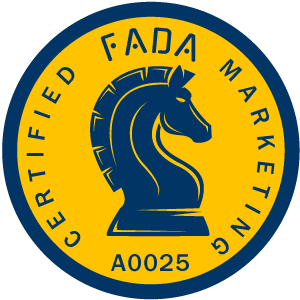Boost Your Brand: Top Strategies for Small Business Digital Marketing Success
Small business digital marketing need not be complex or costly. Owners often wonder how to effectively market their businesses online with limited funds and resources. This straightforward guide tackles that head-on, outlining accessible strategies for enhancing online visibility and engaging customers—without the expense or complexity larger firms might face. Expect to learn about SEO, content marketing, and social media tactics tailored for small business dynamics.
Key Takeaways
- Small businesses can leverage digital marketing to increase online visibility, engage targeted audiences, and compete with larger corporations. A strong online presence, tailored content, and interaction on digital platforms are vital to enhancing brand visibility and customer loyalty.
- The most effective digital marketing strategies for small businesses include SEO to improve search engine rankings, content marketing to provide value and establish authority, and social media marketing to connect with audiences on popular platforms.
- Staying current with industry developments and embracing innovation is crucial for small business marketing success. This includes adopting new technologies like virtual reality and chatbots, utilizing big data, and constantly analyzing performance metrics to adapt strategies.

Embracing Digital Marketing for Small Businesses
The digital age brims with opportunities for small businesses to broaden their reach and amplify brand visibility economically. Leveraging digital marketing can effectively attract a targeted customer base, offering small businesses a chance to compete on the same playing field as larger corporations. Yet, this doesn’t come without challenges. Constrained marketing budget, the struggle to secure qualified personnel, and a deficiency in comprehending digital marketing methodologies may impede their capacity to rival larger corporations.
By prioritizing high-quality content, interacting with their audience on digital platforms, and tailoring their offerings to the preferences of their target market, small businesses can bolster their online visibility. Cultivating customer relationships is crucial to the success of the digital marketing strategy, as it can result in increased customer loyalty, repeat business, and referrals.
Importance of Online Presence
Having an online presence has become non-negotiable for small businesses in the digital age. Improved online visibility helps businesses stand out in a competitive market, enhancing brand reputation, generating potential leads and sales, and increasing brand awareness on digital devices. Furthermore, an online presence enables small businesses to display their products or services effectively, highlighting their unique selling proposition and attracting more customers.
The rise of online shopping has profoundly impacted small businesses. In 2022, the largest group of digital buyers were aged between 25 to 34 years, with 41.8 million online shoppers in this age group. E-commerce sales are projected to grow by 10.4% in 2023 and it is anticipated that 20.8% of retail purchases will occur online. These trends make marketing in the digital age crucial for small businesses, intensifying competition, and potentially reducing foot traffic to physical stores.
Benefits of Digital Marketing for Small Businesses
Small businesses reap a multitude of benefits from digital marketing. It provides cost-effective solutions that allow businesses to:
- Leverage social media platforms
- Utilize Google Business Profile
- Implement content marketing strategies
- Use SEO tools for keyword research and competitive intelligence
Digital marketing has proven to be more effective than traditional marketing strategies. With strategies such as SEO, content marketing, and social media marketing, small businesses can effectively target their digital marketing campaigns.
Digital age marketing provides several advantages, including:
- Real-time monitoring of campaign results, facilitating the identification of successful strategies and areas for improvement
- The ability to reach specific target audiences
- Expanded advertising options
- Enhanced engagement by addressing customer pain points
Successful examples include case studies where local businesses experienced growth through effective marketing campaigns, such as social media and email marketing.

Essential Digital Marketing Strategies for Small Businesses
Focusing on three key strategies - Search Engine Optimization (SEO), Content Marketing, and Social Media Marketing - can bolster online visibility and engagement with the target audience for small businesses. These tactics are not just buzzwords; they are essential elements of any successful digital marketing strategy.
SEO is paramount since it facilitates businesses in securing higher rankings on search engines, thereby driving more organic traffic to their websites. Content Marketing involves developing and sharing valuable content to captivate and involve the audience.
It’s one of the most effective marketing strategies that includes types like:
- videos
- short-form articles
- success stories
- infographics
- and more
Lastly, Social Media Marketing is about using platforms like Facebook and YouTube to interact with your audience, share content, and run targeted ad campaigns.
Search Engine Optimization (SEO)
SEO is the strategic enhancement of a website’s visibility in search engine results when users look for relevant products or services. The primary objective is to boost the website’s ranking in search engine results pages (SERPs) and attract organic traffic by optimizing elements like:
- content
- keywords
- meta tags
- backlinks
SEO aids small businesses by optimizing their website to achieve higher rankings in search engine results, resulting in a boost in organic traffic and the attraction of more targeted customers to their site.
The key components of an effective SEO strategy encompass:
- Focus on content creation
- Utilization of relevant keywords
- Acquisition of high-quality backlinks
- On-page optimization
- Utilization of local SEO
- Maintenance of a responsive website
These elements play a crucial role in enhancing search rankings and organic traffic.

Content Marketing
Content marketing involves:
- Developing and sharing valuable and pertinent content to captivate and involve a specific audience
- Improving search engine visibility
- Boosting website traffic
- Establishing credibility and authority
- Enhancing brand recognition
- Facilitating lead generation and nurturing
- Enhancing SEO
- Strengthening social media presence
- Positioning the business as a leader in its industry
- Delivering value to the audience
- Fostering trust with the target market
- Yielding lasting outcomes.
Blogs are one of the most effective types of content for small businesses. They can be used to:
- Create a highly optimized homepage and key category page copy
- Complement editorial content like blogs and guides
- Diversify content by producing various types such as infographics and whitepapers
- Generate interest
- Include relevant photos to help engage readers.
Video content can also be used to enhance marketing efforts, with options such as how-to videos, product demonstrations, behind-the-scenes footage, customer testimonials, and more.
Social Media Marketing
With billions of users worldwide, social media has cemented its place as a cornerstone of modern life. Platforms like Facebook and YouTube offer excellent opportunities for businesses to reach a broad audience and connect with them on a personal level.
To plan their social media marketing efforts, small businesses should:
- Align social goals with addressing challenges
- Integrate marketing efforts across the organization
- Prioritize networks that provide value
- Maintain a consistent brand style through scheduled posts.
Social media posts can contribute to a brand’s presence by providing multiple touch points through blog posts, social media updates, and newsletter campaigns.

Leveraging Email Marketing for Small Business Growth
For small businesses, email marketing serves as a potent tool. It’s a cost-effective way to:
- reach a wide audience
- promote products or services
- build relationships
- maintain customer loyalty
It also provides valuable data that can be used to improve marketing efforts and increase sales.
Small businesses can make the most of their email marketing campaigns by greeting new subscribers with welcome emails, keeping people informed with newsletters, incentivizing engagement, and utilizing email marketing software. But to effectively use email marketing, businesses must build a strong email list and craft engaging emails.
Building an Email List
Building an email list is an essential step in any email marketing strategy. It enables businesses to:
- effectively reach their target audience
- share pertinent content
- cultivate relationships
- keep customers updated
- boost sales.
Building an email list can be achieved through various strategies such as:
- Utilizing a referral program
- Employing opt-in forms and pop-ups
- Providing incentives
- Gamifying signup forms
- Developing exclusive content
- Sharing discounts and promotions
Selecting a reputable email marketing platform, creating compelling CTAs, and strategically placing signup forms on website pages, pop-ups, and social media can also contribute to list building.
Crafting Engaging Emails
Once you have an email list, the next step is to craft engaging emails that your audience will want to open. Here are some essential components of an engaging email for digital marketing:
- Clear and engaging content
- Eye-catching design
- Segmentation
- Personalization
- A strong call to action
Creating valuable content in marketing emails involves consistently sending content, sharing articles from the company’s blog, and producing relevant content tailored to subscribers’ interests. Incorporating a clear call-to-action involves focusing on placing CTA buttons prominently, writing compelling text, highlighting the buttons with good design, defining the purpose with clear and actionable language, and considering the size and placement for visibility and accessibility.

Utilizing Influencer Marketing to Reach New Audiences
Small businesses can leverage influencer marketing, a burgeoning tool, to tap into new audiences. By partnering with influencers who have a strong following in their niche, small businesses can amplify their brand message, engage potential customers, and drive sales.
Influencer marketing generates authentic and relevant content that highlights the brand’s value and benefits to the influencer’s audience. It provides access to the influencer’s influence and enables engagement with a highly specific audience. But to successfully leverage influencer marketing, businesses must identify relevant influencers and measure the success of their influencer marketing campaigns.
Identifying Relevant Influencers
Identifying influencers who align with a brand’s values and target audience is crucial for a successful influencer marketing campaign. It helps maintain brand integrity and authenticity while fostering trust with the target audience.
To assess the alignment of an influencer with a brand’s values, businesses should conduct a thorough examination of the influencer’s content, evaluate their following, and review their past partnerships. Also, understanding an influencer’s audience demographics is essential to ensure alignment between the influencer’s followers and the business’s target market.
Measuring Influencer Marketing Success
Once a business has partnered with an influencer, it’s important to measure the success of the campaign. Key performance indicators like audience growth rates, return on investment (ROI), and brand awareness can help evaluate the effectiveness of influencer marketing campaigns.
To determine the ROI of an influencer marketing campaign, businesses can use the formula: (Revenue/Cost) x 100. Conversions from influencer marketing campaigns can also be accurately tracked by:
- Utilizing referral links
- Setting up trackable campaigns with UTMs
- Providing influencers with unique coupon codes
- Incorporating influencers into the affiliate program.
Harnessing the Power of Marketing Automation
Marketing automation serves as yet another potent tool for small businesses. By automating repetitive tasks, businesses can boost efficiency, cut down on marketing costs, and improve the overall customer experience.
With marketing automation tools like:
- ActiveCampaign
- Autopilot
- Keap (formerly Infusionsoft)
- HubSpot
Businesses can automate their marketing processes, including email marketing, lead generation, and customer relationship management. However, to fully harness the power of marketing automation, businesses must select the right tool and implement it effectively.
Selecting the Right Marketing Automation Tool
Selecting the right marketing automation tool depends on the business’s needs, budget, and marketing goals. It’s important to evaluate the features and capabilities of various platforms to identify the most suitable one.
Leading marketing automation tools for small businesses include HubSpot, Mailchimp, and Drip. These tools should be utilized to create forms for capturing customer data and to seamlessly integrate with your website.
Implementing Marketing Automation Effectively
Implementing marketing automation effectively requires a clear understanding of the customer journey, targeted content, and continuous monitoring of results. This can be achieved by defining objectives, creating buyer personas, listing touch points, and identifying actions and interactions at each stage of the journey.
When developing targeted content for marketing automation, businesses should consider the following aspects:
- Customer journey mapping
- Personalization
- An omni-channel approach
- Goal definition
- Audience identification
- Selection of the appropriate marketing automation software
Adapting to New Trends in Digital Marketing
In the ever-evolving world of digital marketing, change remains the sole inevitability. Small businesses must:
- Stay updated on industry developments
- Embrace innovation
- Stay ahead of the curve
- Remain competitive.
Staying updated can be achieved by:
- Closely monitoring digital marketing trends
- Evaluating their online presence to gather customer feedback
- Consistently analyzing metrics such as organic traffic using tools like Google Analytics and Search Console
As technology continues to evolve, businesses must also embrace innovation and adapt to new trends in digital marketing.
Monitoring Industry Developments
Keeping tabs on industry developments is indispensable for small businesses to unearth new opportunities and gain a competitive edge. Here are some recommended strategies for monitoring industry developments:
- Regularly monitoring website performance
- Utilizing digital marketing dashboards to track key performance indicators (KPIs)
- Following thought leaders for insights
To stay informed about the latest SEO developments, small businesses can:
- Read authoritative SEO publications and blogs
- Attend webinars and watch instructional videos
- Listen to industry-focused podcasts
- Engage with online groups and communities
Embracing Innovation
Digital marketing thrives on innovation. New technologies such as virtual reality, chatbots, and big data are changing the way that businesses interact with their customers, offering opportunities for enhanced customer experiences and improved marketing outcomes.
Virtual reality can provide interactive and immersive experiences, enabling consumers to engage virtually with products or services. Chatbots can automate engagement with leads, improve lead generation, and gather valuable consumer data. Big data, on the other hand, can analyze large volumes of data, leading to improved customer engagement and increased profitability.
Summary
To wrap up, digital marketing is essential for small businesses in the modern era. From SEO to content marketing, social media marketing, email marketing, influencer marketing, marketing automation, and embracing new trends and innovations, there are numerous strategies that businesses can use to boost their brand, reach new audiences, and drive sales. With the right approach, small businesses can leverage digital marketing to effectively compete in the marketplace and achieve sustained growth.











